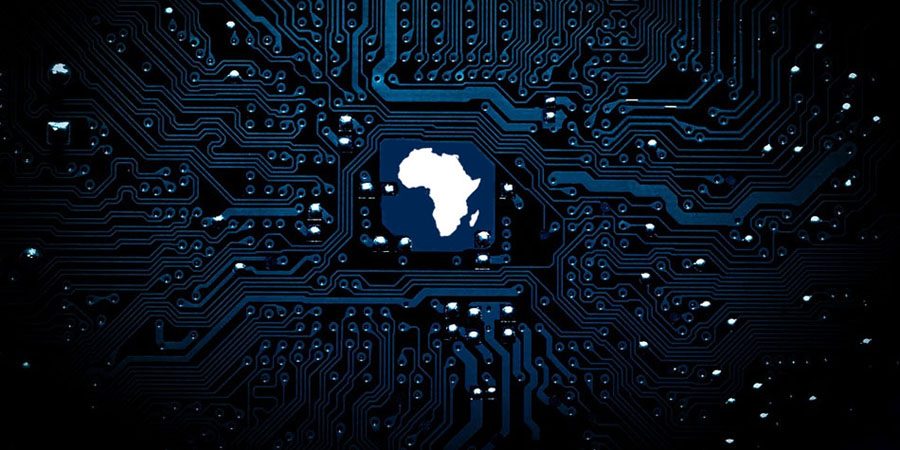In an era where digital tools are reshaping geopolitics, Africa is increasingly turning to tech diplomacy as a strategic lever to enhance its global standing, attract investment, and drive sustainable development. Once viewed primarily as a consumer of foreign technology, Africa is now asserting itself as an active participant in the global digital ecosystem negotiating tech partnerships, shaping digital policy, and fostering innovation-driven diplomacy.
Tech diplomacy the intersection of technology and international relations—has become a vital strategy for countries seeking to navigate the power dynamics of a digitized world. For Africa, it presents a unique opportunity to leapfrog outdated systems, close digital divides, and build equitable partnerships on the global stage.
1. Redefining Africa’s Global Narrative Through Technology
For decades, Africa’s image in international relations was dominated by aid and dependency. Today, technology is helping to recast the continent’s global narrative from a place of need to a frontier of innovation.
-
Startup ecosystems in cities like Nairobi, Lagos, Cape Town, Kigali, and Accra are drawing global interest for their creativity and resilience.
-
African governments are increasingly showcasing local innovations at forums like the United Nations, G20 Digital Economy Task Force, and World Summit on the Information Society.
-
Tech-driven development success stories are positioning Africa as a solution hub for global challenges, from climate resilience to mobile financial inclusion.
In this way, technology has become a form of soft power enabling African states to project influence, build alliances, and shift global perceptions.
2. Strategic Partnerships with Global Tech Powers
Africa’s digital ambitions have attracted the attention of major global players. Countries like China, the United States, the EU, India, and the UAE are engaging African nations not just for trade, but through tech-focused diplomatic channels.
-
China’s Digital Silk Road has expanded into Africa through smart city projects, undersea internet cables, and 5G infrastructure.
-
The U.S.-Africa Leaders Summit has emphasized digital infrastructure and cybersecurity cooperation.
-
The EU-Africa Digital Economy Task Force promotes regulatory harmonization and innovation exchange.
-
India and Africa’s tech diplomacy is growing through capacity-building programs and digital public infrastructure like Aadhaar-inspired ID systems.
By aligning with multiple digital superpowers, African countries are developing a multi-polar approach to tech diplomacy, increasing their bargaining power and access to resources.
3. Pan-African Digital Cooperation and Policy Integration
African Union (AU) initiatives are reinforcing continental unity on tech-related matters:
-
The African Continental Free Trade Area (AfCFTA) includes a digital trade protocol to harmonize e-commerce, data governance, and cybersecurity standards.
-
The AU Digital Transformation Strategy (2020–2030) aims to build a single digital market by 2030, integrating infrastructure, regulation, and education.
-
The Smart Africa Alliance, backed by more than 30 countries, promotes cross-border digital cooperation on AI, blockchain, broadband, and more.
By building shared digital frameworks, Africa is positioning itself to negotiate more effectively with international tech actors and avoid digital fragmentation across the continent.
4. Digital Identity and Tech-Driven Development Diplomacy
One of Africa’s most notable tech diplomacy successes is its leadership in digital identity systems. Countries like Kenya, Nigeria, Ghana, and Rwanda are building biometric ID systems to deliver government services, enhance financial inclusion, and boost transparency.
These initiatives are attracting collaboration with organizations like:
-
The World Bank’s ID4D initiative,
-
The Bill & Melinda Gates Foundation, and
-
UNDP’s digital transformation programs.
Digital ID systems serve as gateways to health, education, and financial services making them key components of development diplomacy and tools for achieving the UN Sustainable Development Goals (SDGs).
5. Africa’s Voice in Global Digital Governance
As the global debate intensifies around data sovereignty, AI ethics, cybersecurity, and digital rights, African countries are increasingly seeking a seat at the table in shaping global norms.
-
Countries like Rwanda, Kenya, and South Africa are participating in global AI and digital policy dialogues.
-
The AU Commission is developing a continental data policy framework to assert African interests in cross-border data flows.
-
Civil society and tech communities across the continent are advocating for digital human rights, open internet principles, and tech accountability.
By participating in multilateral forums and regional coalitions, Africa is beginning to influence the global digital rulebook in ways that reflect its values, priorities, and development needs.
6. Tech for Peace, Security, and Regional Diplomacy
Technology also plays a critical role in regional diplomacy and conflict resolution:
-
Early warning systems, digital mapping, and AI tools are being used for peacebuilding and crisis response.
-
Cybersecurity cooperation is becoming central to defense strategies and diplomatic alignments.
-
Digital diplomacy platforms (including virtual embassies and online consulates) are emerging as tools for African governments to connect with citizens and diaspora communities.
As digital threats grow, so too does the need for tech-enabled multilateral security arrangements.
Africa is no longer a passive player in the global tech landscape. Through strategic alliances, continental coordination, and homegrown innovation, the continent is leveraging technology as both a tool of empowerment and a pillar of its international relations.
In doing so, Africa is reshaping its role in global diplomacy from aid recipient to digital architect of its own future.
Tech diplomacy is Africa’s bridge to equitable globalization a means to not only participate in but help define, the digital world order.
Read more on Tech Gist Africa:
The Role of CleanTech in the Fight Against Global Air Pollution
How Africa is Positioning Itself as a Key Player in the Global Tech Economy
How Africa’s Tech Ecosystem is Attracting Global Investors and Technology Giants
